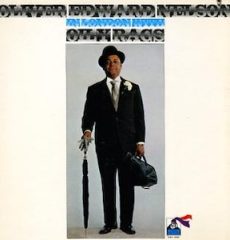
Daily Dose Of Jazz…
Chris Karan was born Chrisostomos Karanikis on October 14, 1939 in Melbourne, Victoria, Australia. In the early 1960s he played in the Three Out Trio with Mike Nock and Freddy Logan in Sydney, Australia.
A move to London, England in 1962 saw him becaming the drummer in the Dudley Moore Trio. He toured and recorded with Moore for many years, including appearances on the TV series Not Only But Also and the soundtrack of the 1967 movie Bedazzled. Their association continued until Moore’s last major public appearance at Carnegie Hall in New York City in 2001.
Karan has worked with Michel Legrand, Lalo Schifrin, Charles Aznavour, the Swingle Singers, Quincy Jones, Herbie Hancock, Stanley Myers, Basil Kirchin, Tony Hatch, Jackie Trent, Jerry Goldsmith, Jerry Fielding, Pat Williams, André Previn, Richard Rodney Bennett, Barry Tuckwell, Carl Davis, Henry Mancini, the Beatles, the Seekers, Katie Melua and Roy Budd.
He toured with John Dankworth and Cleo Laine, the Bee Gees, Caterina Valente, Dusty Springfield, Lulu and the Yardbirds. He was a member of the Harry Stoneham group, which provided the musical backing for the Michael Parkinson shows on BBC-TV.
As a member of Roy Budd’s band, the Roy Love Trio, he performed on the Get Carter 1971 film soundtrack. He plays the tabla on some albums, having studied the instrument under the Indian musician Alla Rakha. He has recorded with Dudley Moore, Ronnie Scott, Teresa Brewer, Ian Carr, Ray Ellington, Stephane Grappelli, Cleo Laine, Oliver Nelson, among numerous others.
Drummer and percussionist Chris Karan, who at 84 years of age has recorded 84 albums as a sideman, continues to perform.
More Posts: drums,history,instrumental,jazz,music,percussion,tabla
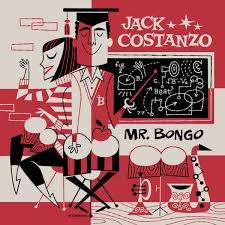
Daily Dose Of Jazz…
Jack James Costanzo was born on September 24, 1919 in Chicago, Illinois to Italian parents. Starting his career as a dancer, he toured as a team with his wife before World War II. After his discharge from the Navy, he worked as a dance instructor at the Beverly Hills Hotel, where Latin band leader Bobby Ramos heard him playing bongos in a jam session and offered him a job.
He visited Havana, Cuba three times in the 1940s and learned to play Afro-Cuban rhythms on the bongos and congas. Throughout the 1940s, Costanzo worked with several Latin bands, including a revived version of the Lecuona Cuban Boys, Desi Arnaz, and Rene Touzet.
Jack toured with Stan Kenton from 1947 to 1948 and occasionally in the 1950s, and played with Nat King Cole from 1949 to 1953. He also played with the Billy May Orchestra, Peggy Lee, Danny Kaye, Perez Prado, Charlie Barnet, Pete Rugolo, Betty Grable, Harry James, Judy Garland, Patti Page, Jane Powell, Ray Anthony, Martin & Lewis, Frances Faye, Dinah Shore, Xavier Cugat, Frank Sinatra, Tony Curtis, and Eddie Fisher.
Costanzo formed his own band in the 1950s which recorded and toured internationally. Hollywood stars Marlon Brando, Rita Moreno, Carolyn Jones, Hugh O’Brian, Keenan Wynn, Van Johnson, Tony Curtis, Betty Grable, Vic Damone, James Dean, and Gary Cooper among others, studied bongos with him.
He went into retirement until 1998 when he decided to make a comeback. In 2001 he recorded Back From Havana featuring Gilbert Castellanos, Steve Firerobing and singer Marilu. In 2002 he released his sophomore album with the same cast called Scorching The Skins. He continued to tour and perform in California and abroad.
Percussionist, dancer, composer and bandleader Jack Costanzo, nicknamed Mr. Bongo, died of complications from a ruptured abdominal aortic aneurysm at his home on August 18, 2018 in Lakeside, California at the age of 98.
More Posts: bandleader,composer,history,instrumental,jazz,music,percussion
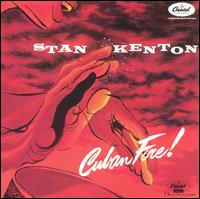
Daily Dose Of Jazz…
Art Anton was born on September 8, 1926 in New York City. In the early 40’s he was a private student of Irving Torgman, and was a music major at New York University from 1943 through 1944. He returned for further studies from 1946 through 1947. In between, the Navy grabbed him to play its own military paradiddles. From the late ’40s onward, he began working with leaders such as Herbie Fields, Sonny Dunham, Bobby Byrne, Tommy Reynolds, and Art Wall.
In 1952, he got into the combo of saxophonist Bud Freeman, moving to pianist Ralph Flanagan’s band the following year. Anton’s drumming style stuck closely to straight-ahead jazz swinging or whatever other beat was required. After gigs in 1954 with Jerry Gray and Charlie Barnet, he relocated to the west coast and began freelancing. He performed and recorded with the big band of Stan Kenton to multi-instrumentalist Jimmy Giuffre’s smaller units.
Maintaining steady employment as a jazzman on the stingy Los Angeles, California scene was difficult, and Artie looked for other types of employment. During the ’60s, he turned to selling vacuum cleaners, worked as a private detective, while remaining a highly respected West Coast percussionist.
Drummer and percussionist Art Anton, who is also listed as Artie or Arthur, died on July 27, 2003 in Yakima, Washington.
More Posts: drums,history,instrumental,jazz,music,percussion
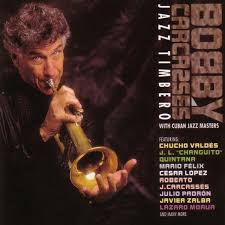
Daily Dose Of Jazz…
Bobby Carcassés was born on August 29, 1938 in Kingston Jamaica where his Cuban grandfather worked as a diplomat. Upon moving to Villa Clara, Cuba at the age of four he grew up surrounded by Cuban rhythms, listening to Benny Moré, Conjunto Casino & Roberto Faz. He acquired a love for an eclectic spectrum of music from the opera star Enrico Carusso and Mexico’s Jorge Negrete to jazz royalty Sarah Vaughan, Buddy Rich and Stan Getz.
By the 1950’s he was involved with some of the best vocal quartets in Cuba and while playing for many years at The Tropicana the center of Cuban Jazz, he began to experiment with bebop and scat vocals. During the Sixties he traveled to Europe, spending a year in Paris where he played with Kenny Clarke and Bud Powell.
Returning to Cuba he worked in the Teatro Musical where he met three of the future founders of Irakere: Chucho Valdes, Carlos Emilio Morales and Paquito D’ Rivera. Over the next ten years he played in the best night clubs in Havana, Cuba as well as acting in Cuban cinema, Tv and essentially starting to form his own Jazz group.
In 1980 he organized the first Jazz Plaza Festival in Havana, inviting Dizzy Gillespie, Ronnie Scott, Charlie Haden, Airto Moreira, Tania Maria, Steve Coleman and many others. After his own group played these festivals. he traveled to Canada, England, France and the USA where he performed with Tito Puente, Eddie Palmieri, Patato Valdés and many others on the Latin Jazz scene.
Trumpeter Bobby Carcassés, who also plays piano, bass, percussion, and flugelhorn, as well as writing his own pieces, continues to perform, record and create art that has been exhibited globally.
More Posts: bandleader,bass,composer,flugelhorn,history,instrumental,jazz,music,percussion,piano,trumpet
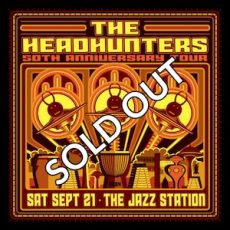
THE HEADHUNTERS
The current band consists of a top notch quintet with Clark, Summers and Harrison joined by bassist Chris Severin (Dr. John, Diana Krall, The Neville Brothers) and pianist Kyle Roussel (Preservation Hall Jazz Band), both staples on the New Orleans music scene. Managed by Greg Lucas and Craig Walker at Devil Hills Entertainment, the band is poised for success in 2024, having recorded a new album and accompanying feature length documentary at the legendary Hyde Street Studios in August 2023 and completed a sold out European tour in November 2023 including two nights at the London Jazz Festival.
The Band:
More Posts: adventure,bandleader,bass,club,drums,genius,history,instrumental,jazz,music,percussion,piano,preserving,saxophone




